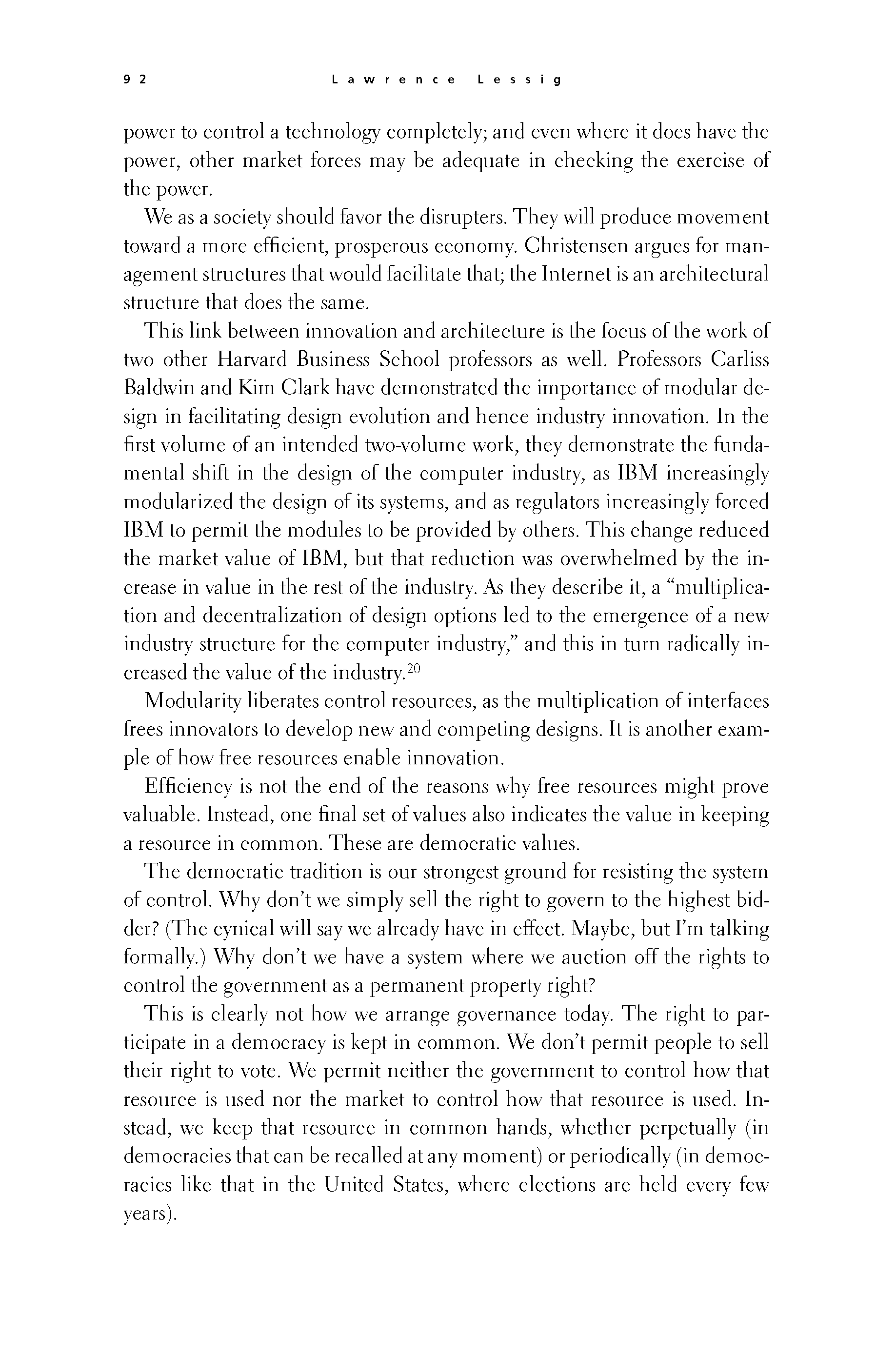 p091 _
-chap- _
toc-1 _
p092w _
toc-2 _
+chap+ _
p093
p091 _
-chap- _
toc-1 _
p092w _
toc-2 _
+chap+ _
p093
power to control a technology completely; and even where it does have the
power, other market forces may be adequate in checking the exercise of
the power.
We as a society should favor the disrupters. They will produce movement
toward a more efficient, prosperous economy. Christensen argues for man-
agement structures that would facilitate that; the Internet is an architectural
structure that does the same.
This link between innovation and architecture is the focus of the work of
two other Harvard Business School professors as well. Professors Carliss
Baldwin and Kim Clark have demonstrated the importance of modular de-
sign in facilitating design evolution and hence industry innovation. In the
first volume of an intended two-volume work, they demonstrate the funda-
mental shift in the design of the computer industry, as IBM increasingly
modularized the design of its systems, and as regulators increasingly forced
IBM to permit the modules to be provided by others. This change reduced
the market value of IBM, but that reduction was overwhelmed by the in-
crease in value in the rest of the industry. As they describe it, a "multiplica-
tion and decentralization of design options led to the emergence of a new
industry structure for the computer industry," and this in turn radically in-
creased the value of the industry.[6-20]
Modularity liberates control resources, as the multiplication of interfaces
frees innovators to develop new and competing designs. It is another exam-
ple of how free resources enable innovation.
Efficiency is not the end of the reasons why free resources might prove
valuable. Instead, one final set of values also indicates the value in keeping
a resource in common. These are democratic values.
The democratic tradition is our strongest ground for resisting the system
of control. Why don't we simply sell the right to govern to the highest bid-
der? (The cynical will say we already have in effect. Maybe, but I'm talking
formally.) Why don't we have a system where we auction off the rights to
control the government as a permanent property right?
This is clearly not how we arrange governance today. The right to par-
ticipate in a democracy is kept in common. We don't permit people to sell
their right to vote. We permit neither the government to control how that
resource is used nor the market to control how that resource is used. In-
stead, we keep that resource in common hands, whether perpetually (in
democracies that can be recalled at any moment) or periodically (in democ-
racies like that in the United States, where elections are held every few
years).
[[92]]
p091 _
-chap- _
toc-1 _
p092w _
toc-2 _
+chap+ _
p093